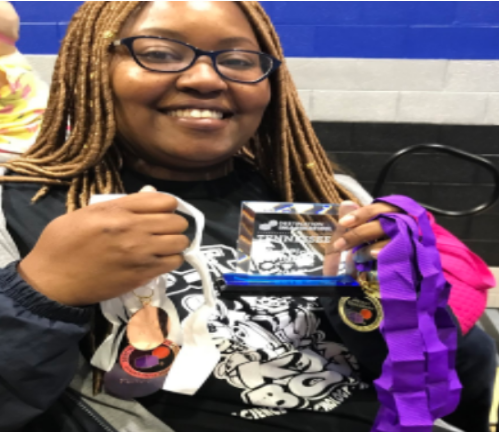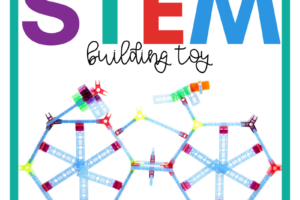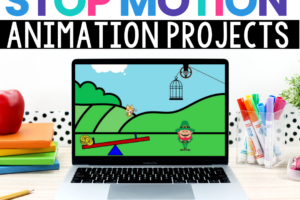
This post is a guest post by Donna Ratchford. Donna is a gifted education teacher in Memphis, Tennessee. She has a Master’s Degree in Gifted Education and loves integrating STEM and coding in the classroom. Donna specializes in coding, STEM enrichment activities, and Destination Imagination.

Destination Imagination is a Global Nonprofit that fosters creativity, curiosity and courage. It focuses on the creative process with seven project-based challenges. The challenges include: Technical, Scientific, Engineering, Fine Arts, Improvisational, Service Learning, and Early Learning. The challenges are open-ended and new each year. The tournament is for grades Pre-k to the university level.
So how do I start?

To start, you need a team manager that is 18 years or older. It can be you, another teacher, administrator, parent, grandparent, or any helpful community member.
I tried to start alone, but I suggest having at least one person partner with you on this ride.
Teams can have between 2 and 7 students. I say 3 to 5 is a great size for a team. The larger the team, the more difficult it is for a team to make decisions and agree. The smaller teams also tend to have a greater sense of camaraderie.
You need a meeting place. It could be in your classroom, the school library, or makerspace. You could also meet somewhere outside of school like a community center, coffee shop, or public library.
How do I recruit or select students?
I often create a flyer and application for Destination Imagination each year. I look for students who have good behavior and grades. I also get teacher recommendations. Recently, I created a Google Form to timestamp parent applications. The form has questions about the requirements of the tournament. It is good to recruit students who are interested in math, science, or drama. I often have a semi audition. I will invite the students to do a few simple STEM challenges to see their communication, teamwork, and leadership skills.

How will I budget or fund the team?
There are costs to the Destination Imagination experience. There is a team number fee. There is also a regional and/or affiliate tournament fee. The regional tournament would be your city or county. The affiliate tournament would be for the state. Last, there is a globals tournament that has the top 2 state teams from different places worldwide. You will also need funds for props, costumes, tools, scenery, and materials to complete the team challenges. Most challenges only allow you to spend $150.

Funding would depend on your school and district guidelines. If you teach at a public school, you may have to write grants or fundraise. Destination Imagination has a start a team grant. If you teach at a private school, you may have funds available as part of a STEM budget. You could also charge a fee to join the club, and use the funds to pay for needs.
What are team challenges and how do we decide on a challenge?
There are 7 types of challenges: technical, scientific, engineering, fine arts, improv, service learning, and rising stars.
Technical: engineering and planning
Scientific: research and scientific curiosity
Engineering: designing load-bearing structures
Fine Arts: acting, research, and the arts
Improv: spontaneous storytelling
Service Learning: solving a real-life problem
Rising Stars: Pre-K to 2nd grade creative performance
There is also an instant challenge that you will not know until you arrive at the tournament. The instant challenge will be either a task, performance, or combination of the two.
I always show my students the team challenge previews on Youtube each year. I also have the students complete interest inventory to help them select a challenge that suits them.
How often should I meet and what do we do?
I typically meet once a week for about 90 minutes or twice a week for one hour. We have a snack and decompress. Then, we do team building activities. There is a roadmap that comes with your team number purchase that can help. We also work on the team challenge. Each challenge normally has a skit/storytelling piece. Students develop the story and work on any research needed. One important thing to remember is interference. One of the rules for Destination Imagination is no interference. Parents and teachers are not allowed to give students ideas for solutions. Team managers can be facilitators and guides. They can teach students a skill like how to research the web, but team managers are not allowed to give answers.
What about the state/globals tournament?
Plan with the end in mind. Plan your budget to include fees for the state tournament. Have a fundraising plan in case you make it to globals. You will need to think about transportation and lodging. Can you write a grant? Maybe a local religious organization or rotary club can help. I always provide dates for local, state, and global tournaments to parents ahead of time so they can prepare. My parents often stay with family or friends and drive themselves. My coworkers and I make it a fun day trip.
Final Takeaways
First year of DI
During DI
At the Tournament
Destination Imagination is like a rollercoaster. It is full of ups, and downs. You may even feel sick. The students learn collaboration, creativity, critical thinking, communication, decision making, project management, leadership and more!
It is a blast and a priceless experience.
Thanks so much to Donna Ratchford for posting all about Destination Imagination!




Leave a Reply
Your email is safe with us.